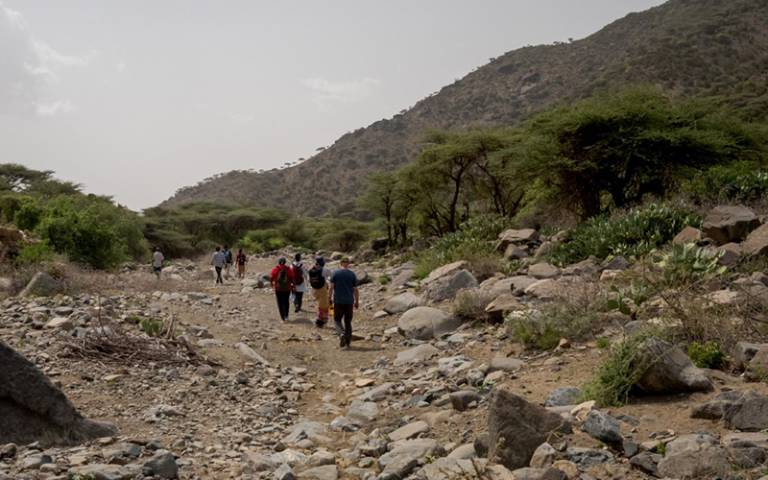DPU collaborative project receives UCL Global Engagement’s Africa and Middle East Teaching Fund
13 December 2022
The project “Dwelling the threshold between climate change and economic growth: promoting a sustainable and just use of Somaliland resources”, is being led by Dr Giorgio Talocci and Dr Amina-Bahja Ekman, with the collaboration of Professor Michael Walls

The project proposal has been developed in partnership with Redsea Cultural Foundation (RCF), an organisation aiming to promote reading and creative writing in Somali-speaking society, with a particular focus on youth. The RCF established in 2014 the Hargeysa Cultural Centre (HCC), which engages in research in collaboration with regional and global institutions for equal opportunity and collaborative global citizenry
DPU and RCF visited the town of Sheikh in June 2022 to meet with representatives of the recently established Sheikh University of Natural Sciences and Technology the Higher Education (SUNSAT) and explore the natural landscape in the town surroundings, along with its agricultural and pastoral practices, and the oral histories connected to those.
The project acknowledges how climate change is affecting such practices, along with the whole natural and social landscape of Somaliland, due a prolonged sequence of droughts. At the same time, it acknowledges how the country is facing exponential economic growth due to development of the Berbera Corridor, a highway from Addis Ababa (Ethiopia) to the Berbera Port.
Sheikh is a privileged point of view for observing such dynamics, with its historical ‘green’ landscape having become much drier, and the town centre soon to experience economic growth and demographic pressure – given the proximity to Berbera and the establishment of higher education institutions (including SUNSAT) and, soon, tourism facilities.
The project asks therefore how to promote a sustainable use of the country’s resources, in light of economic growth and in the wake of climate change. The project team will attempt to answer through a two-week workshop, organising a series of research-driven hands-on activities such as walks, interviews with herders, farmers and traders, observation of agricultural techniques and current coping strategies, site visits to industrial facilities being impacted by the development of the Berbera Corridor. Such activities, along with a series of seminars organised by local and international participants (DPU, RCF and SUNSAT representatives, along with representatives from local authorities, universities and civil society organisations), will feed a collective and collaborative discussion toward the development of an inter-departmental taught module at SUNSAT addressing the above-mentioned research question, and the early development of a website working as atlas of climate-change-related issues and coping strategies in the area.
We wish to thank Dr Jama Musse Jama (RCF) for the support in designing the research proposal, and for the support in implementing it.
 Close
Close

